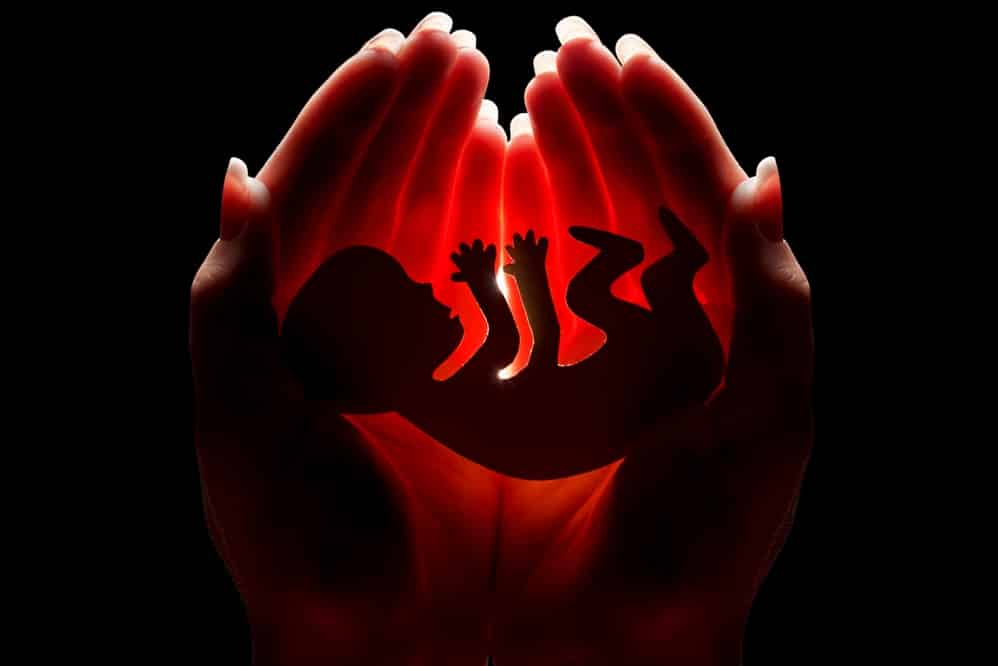The commodification of the unborn is coming to us in all different ways at the moment.
Two weeks ago, The Catholic Weekly editorial discussed the recent videos showing Planned Parenthood officials Deborah Nucatola and Dr Mary Gatter discussing the price charged for intact organs of aborted babies donated by their mothers. Since that time, more videos have been released showing lab staff trying to identify the foetal organs, and discussing the funds they might obtain as a result.

Despite emphatic denials from Planned Parenthood, there is no other way to understand this than an example of the commodification of unborn human beings.
We might like to think that the concept and the alarming nature of those videos are isolated to the United States.
Miranda Devine noted in her column on the subject that Australia allocates more than $30 million of our ever-decreasing foreign aid budget to the international arm of Planned Parenthood, and that Australian researchers also use aborted foetal organs in their research, with its provenance equally opaque. Australia is not immune.
But this is not only about the abortion industry. The commodification of unborn children is increasingly being seen in the area of assisted reproduction in Australia.
Just a few weeks ago, an editorial appeared in the Medical Journal of Australia about recent developments in non-invasive prenatal testing (NIPT).
[For those unfamiliar with the process, NIPT involves taking blood from the mother’s arm (like any other type of blood test), assessing it for risk of chromosomal “abnormalities”. It claims a much higher accuracy rate than the ultrasound and blood test usually done in the first trimester, and it is not as invasive as amniocentesis (which involves a risk of miscarriage because it requires fluid to be extracted from the amniotic sac surrounding the baby). It does not definitively diagnose a chromosomal condition, but can provide a more accurate assessment of the “risk” it will occur. Amniocentesis can follow this if confirmation is required.]
The editorial begins:
“In Australia, it is routine practice to offer pregnant women screening for foetal chromosomal and structural abnormalities, and, if serious anomalies are diagnosed, the option of terminating the pregnancy.”
It goes on to discuss the price of NIPT, and notes that it is currently seen as too expensive to be adopted as a “publicly funded universal population screening strategy in Australia”, citing “strong arguments, both ethical and financial, for making NIPT available through the public health system in the near future…” What this editorial in Australia’s leading peer-reviewed general medical journal is saying is that there is economic benefit in having the taxpayer-funded screening of unborn children for “abnormalities”, with a view to terminating the pregnancy “if serious anomalies are diagnosed.”
In a similar vein to the Planned Parenthood videos, it is evidence of a commodification of the unborn. With Planned Parenthood, the commodification is manifest in making money from the practice of abortion. With the idea of taxpayer-funded NIPT, the commodification comes about when considering how much money might be saved through the practice of abortion.
Either way, it’s all about the money. And finally, we have the National Health and Medical Research Council (NHMRC) considering changing its ethical guidelines to allow IVF to be used for the purposes of sex selection for non-medical reasons. Currently in Australia, parents are permitted to choose the sex of their child if there is a genetic condition which is associated with a gender, but for no other reason. This has seen Australian couples travel to the US – where sex-selective IVF is legal – and pay up to $50,000 to ensure they get the child they want.
In an announced review of its ethical guidelines for assisted reproductive technologies, the government body which licenses and sets the ethical standards for IVF clinics is seeking public comment on whether and in what circumstances we might consider this to be ethical, meaning that the NHMRC is seriously considering allowing this to happen in Australia.
The commodification of unborn children seen in the push for sex-selective IVF is not about the money which can be made or saved from abortion. Instead, it is about how we are able to treat children like any other consumer good, that is, a product which we can order to our liking. The discarded embryos of the “wrong” gender are merely collateral damage in this consumer-driven approach to the unborn.
The dehumanisation of unborn children by treating them (in whole or in part) as items on a shopping list is a terrifying indictment on our society. Worse than the very public Planned Parenthood videos is the deafening silence around the forms of commodification occurring in Australia with the apparent backing of peak medical and ethical bodies.
